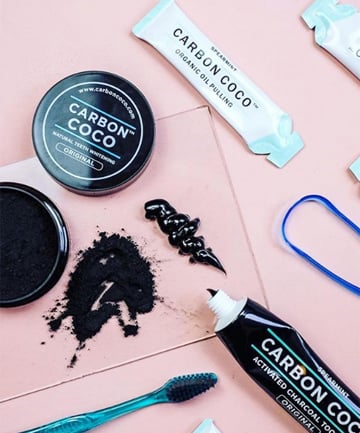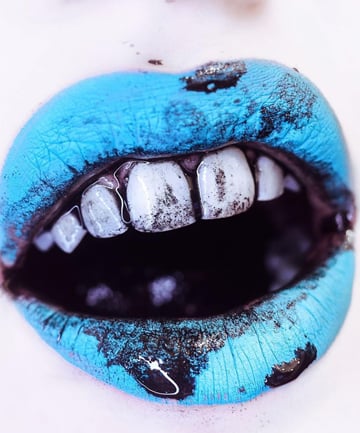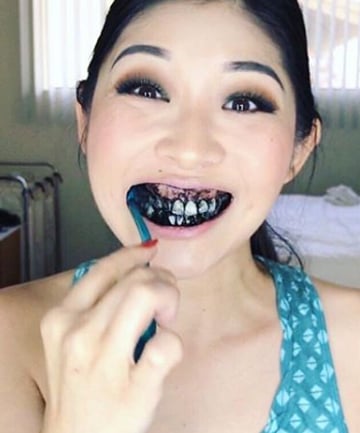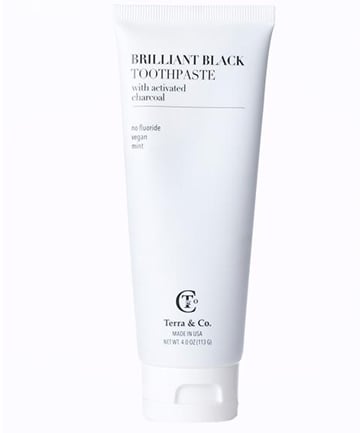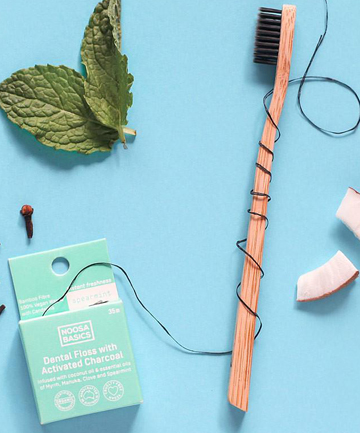So what about when it comes to your smile? "Brushing your teeth with activated charcoal can have brightening benefits," says New York dentist Greg Gelfand, D.D.S. "Because the charcoal is porous, it is able to absorb toxins. The charcoal sticks to the teeth then, when it is removed, it takes plaque, food particles and surface stains with it."
Surface stains are caused by coffee, tea and red wine and are known as extrinsic stains — meaning they develop on the outer layer of your teeth, says Los Angeles-based dentist Steven Charng, D.D.S. Activated charcoal won't be able to do anything for intrinsic stains on the dentin layer (which is beneath the enamel) caused by certain medications or trauma to your teeth, says Charng. Activated charcoal also won't change the color of fillings, veneers or crowns, says Gelfand.
Image via @carboncocoau
Surface stains are caused by coffee, tea and red wine and are known as extrinsic stains — meaning they develop on the outer layer of your teeth, says Los Angeles-based dentist Steven Charng, D.D.S. Activated charcoal won't be able to do anything for intrinsic stains on the dentin layer (which is beneath the enamel) caused by certain medications or trauma to your teeth, says Charng. Activated charcoal also won't change the color of fillings, veneers or crowns, says Gelfand.
Image via @carboncocoau
The September 2017 issue of the Journal of the American Dental Association found that there is no evidence that dental products containing charcoal are safe or effective — so you need to be careful if you want to try brushing your teeth with it, says Gelfand and Charng. There's even a chance that activated charcoal could possibly wear away enamel, the protective outer layer of your teeth. "One thing to be cautious of is the abrasiveness of charcoal on enamel," says Charng. "If the activated charcoal is too coarse and you scrub it on your teeth, you can wear away the enamel. If that happens, then the dentin layer underneath becomes exposed."
Image via @carboncocoau
Image via @carboncocoau
If this is still a trend you want to try, reach for activated charcoal toothpaste — not the actual powder. "Pure activated charcoal is very rough and abrasive," says Gelfand. "Using straight-up activated charcoal could damage your tooth enamel irreversibly. Also, because of the dark color, you can end up staining your gums black. The charcoal can get lodged in your gums and be very difficult to remove, causing black staining." Gelfand suggests limiting your use to this kind of toothpaste to once a week. You can also find charcoal on floss and toothbrush bristles — and neither of those will turn your mouth black like toothpaste or powder would.
Image via @carboncocaau
Image via @carboncocaau
Buy now
Buy now


